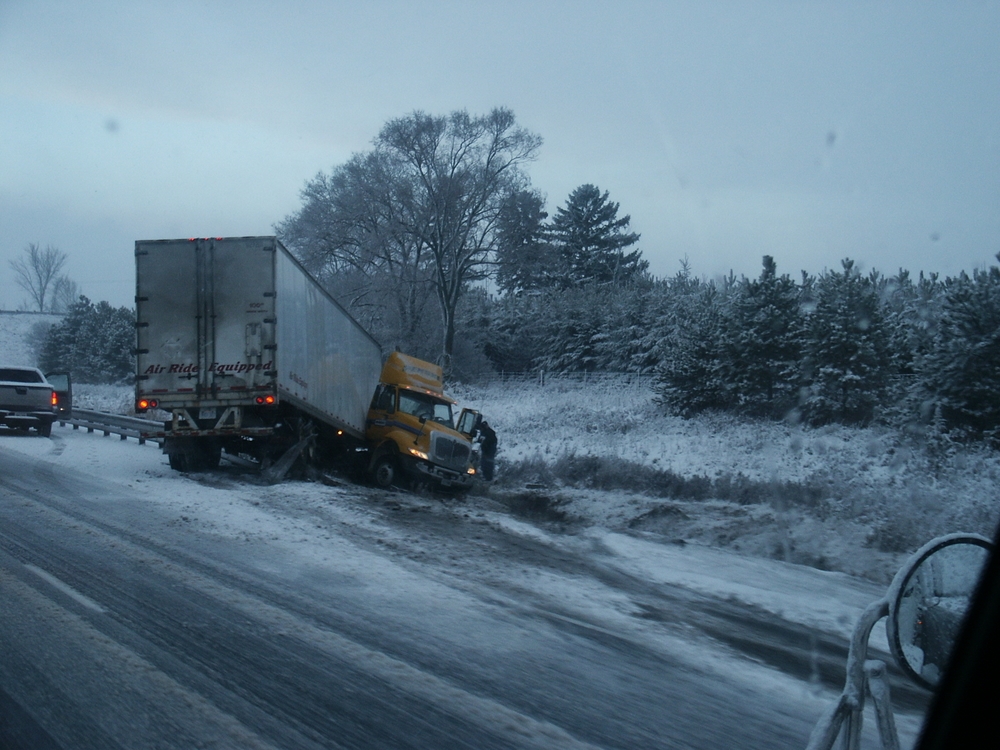
In New Jersey, winter weather significantly increases the risk of truck accidents, often resulting in severe injuries or fatalities. The state’s unique, sometimes unpredictable weather conditions heighten the dangers associated with navigating roads crowded with large commercial trucks. At The Law Offices of Richard A. Stoloff, we recognize the profound impact these accidents can have on victims and their families. This article explores how winter weather conditions contribute to truck accidents, the legal implications, and the advantages of consulting a personal injury attorney.
The Science Behind Weather-Related Truck Accidents
To understand the role of weather in truck accidents in New Jersey, it's crucial to examine the scientific factors involved. The state's geographical position and diverse climate patterns expose it to a variety of weather conditions, which can significantly affect road safety, especially for large commercial trucks.
The Impact of Rain and Hydroplaning
Winter in New Jersey presents a unique challenge as it does not always equate to freezing temperatures. Instead, the season often brings a mix of weather patterns, including frequent rainfall that can lead to slippery road conditions, heightening the risk of accidents and collisions. When large commercial trucks hydroplane, they lose traction and control, posing a grave threat to nearby vehicles. This risk is exacerbated in winter, where the expectation of icy conditions may not always align with the reality of wet, unfrozen roads.
Snow, Ice, and Their Deadly Consequences
New Jersey's winters, characterized by their unpredictability, can swiftly transition from mild, wet conditions to severe snow and ice. This sudden change poses a significant threat to road safety, especially for heavy commercial trucks. Snow and ice not only reduce visibility but also significantly increase the braking distance for vehicles, a critical factor for large commercial trucks. The unpredictability of these conditions often catches drivers off guard, and often leads to disaster ranging from jackknife accidents, where a truck folds onto itself, to multi-vehicle pile-ups from the inability to stop in time on icy roads.
Fog, Reduced Visibility, and Fatal Accidents
The diverse winter climate of New Jersey also brings dense fog, a significant hazard for truck drivers. New Jersey often experiences warmer periods during the winter months, leading to dense fog formation, especially along the coastlines and near bodies of water. This fog drastically reduces visibility, making it challenging for truck drivers to see other vehicles, road signs, and lane markings.
Strong Winds and Their Impact on Truck Stability
New Jersey's varied winter weather also includes gale winds. These intense winds pose a unique challenge during the winter months, which may not always be cold. Large commercial trucks, particularly those with high profiles, are more susceptible to being pushed off course or tipping over when subjected to gusty winds combined with wet or icy road conditions.
Legal Implications of Weather-Related Truck Accidents
Understanding how weather conditions contribute to truck accidents is crucial, but it's also important to consider the legal implications of these accidents. Determining liability is complex, and weather conditions often play a significant role.
Negligence and Driver Responsibility
Truck drivers are expected to adjust their driving behaviors and reduce their speed in response to poor weather conditions. Failure to do so can result in accidents, injuries, and even fatalities, for which the driver may be held responsible. Proving negligence can be challenging, and that's where legal expertise is invaluable.
Government’s Role in Road Safety
Government entities, such as the New Jersey Department of Transportation, also bear some responsibility for maintaining safe road conditions during adverse weather. If it can be proven that they failed to adequately clear snow and ice or provide adequate signage in dangerous conditions, liability may shift to the government.
Trucking Company Liability
Trucking companies may be held liable if they forced their drivers to operate in unsafe conditions, such as during a severe snowstorm or dense fog. Trucking companies are expected to prioritize safety, and if they ignore weather-related risks, they can face legal consequences.
Navigating Insurance Challenges
Weather-related accidents can complicate the insurance claims process. Insurance companies may attempt to deny or reduce payouts by arguing that the accident was primarily caused by adverse weather, rather than driver negligence. Having a legal advocate who can navigate these challenges is crucial for accident victims seeking fair compensation.
Contact an Experienced Truck Accident Lawyer at The Law Offices of Richard A. Stoloff for a Free Consultation About Your Case Today
If you experienced a personal injury or suffered the loss of a loved one due to a collision with a large commercial truck accident, The Law Offices of Richard A. Stoloff are here to stand by your side. We understand the profound impact these tragic events can have on your life, and we are committed to helping you navigate these challenging times with compassion and expertise.
Our dedicated team specializes in handling the complexities of truck accident cases in New Jersey. We recognize the unique challenges faced by those injured in such accidents, as well as the deep pain and loss experienced by families who have lost a loved one. Our goal is to provide you with the personalized attention and aggressive representation you need to secure the justice and compensation you deserve.
You don't have to face this journey alone. Let us be your advocates and allies in seeking the best possible outcome for your case. Contact us today for a free consultation, and take the first step towards finding the support and resolution you need during this difficult time.
